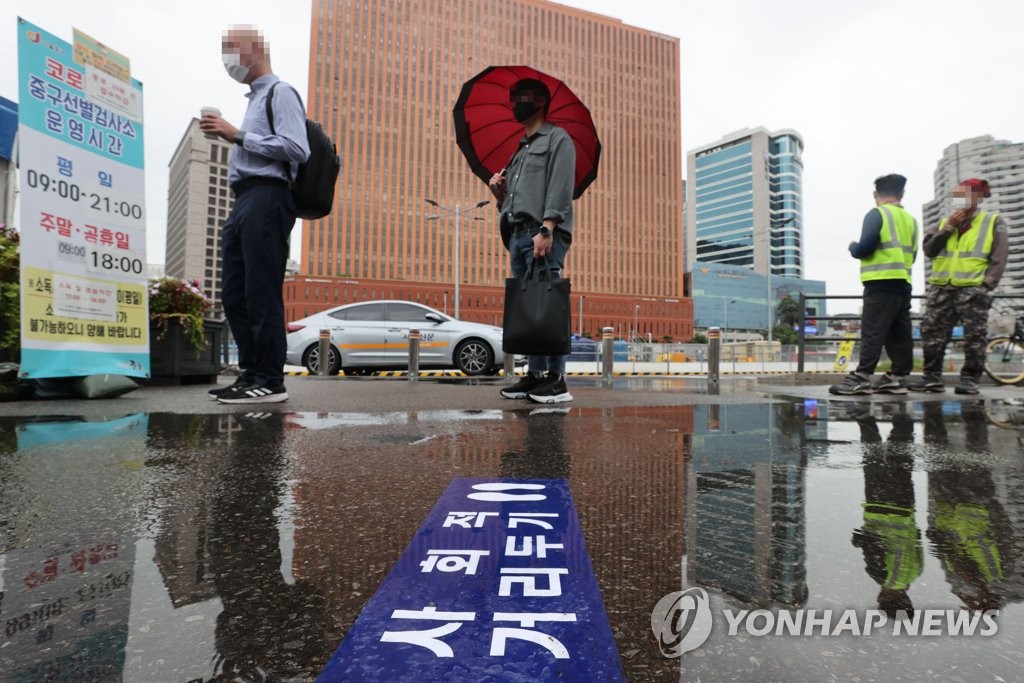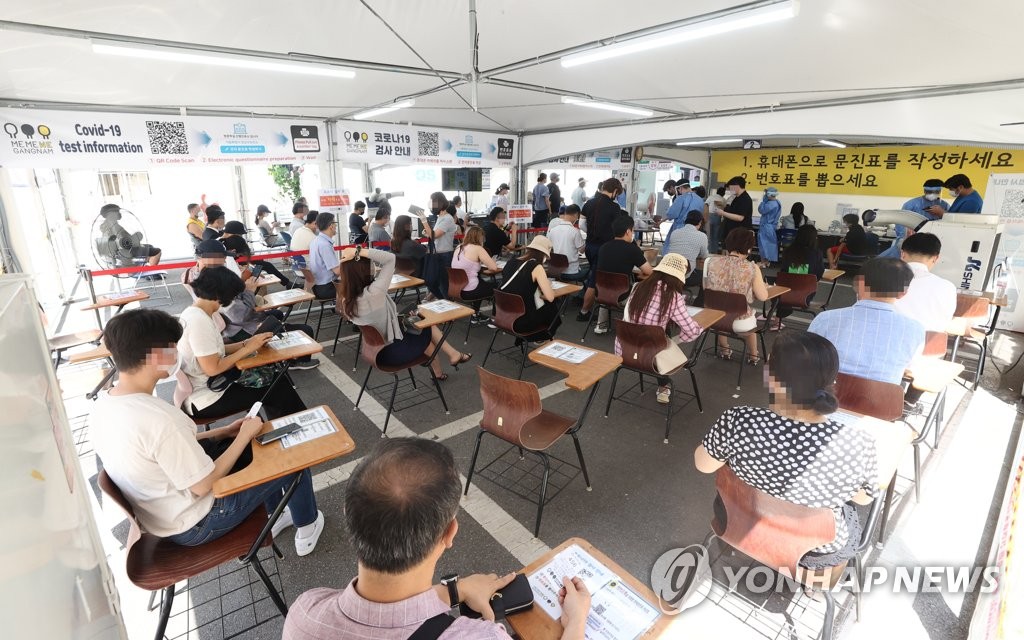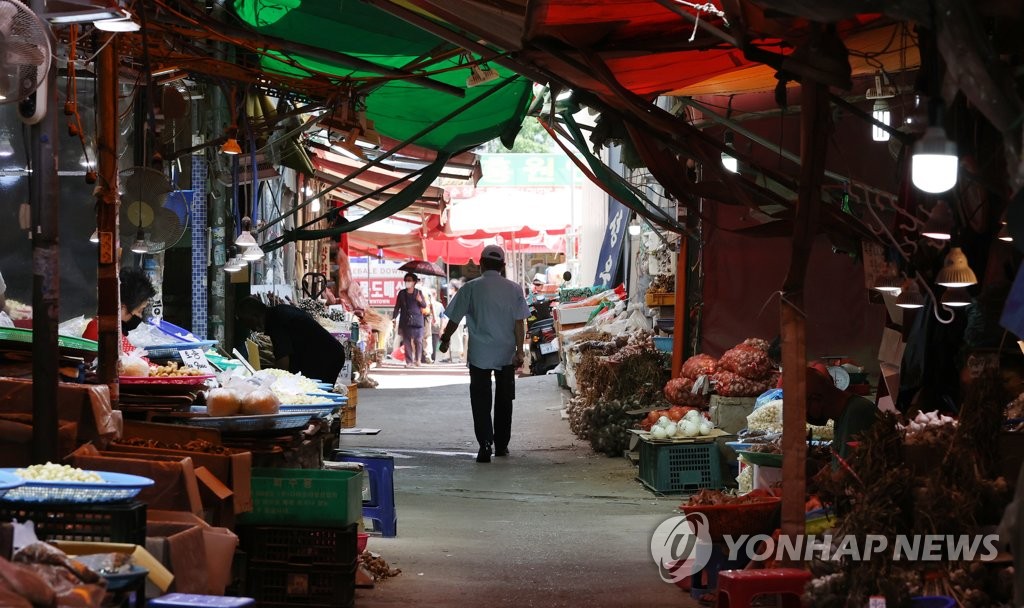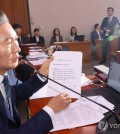- California Assembly OKs highest minimum wage in nation
- S. Korea unveils first graphic cigarette warnings
- US joins with South Korea, Japan in bid to deter North Korea
- LPGA golfer Chun In-gee finally back in action
- S. Korea won’t be top seed in final World Cup qualification round
- US men’s soccer misses 2nd straight Olympics
- US back on track in qualifying with 4-0 win over Guatemala
- High-intensity workout injuries spawn cottage industry
- CDC expands range of Zika mosquitoes into parts of Northeast
- Who knew? ‘The Walking Dead’ is helping families connect
(4th LD) New cases spike to over 1,800s, further rise in store after holiday
South Korea’s daily new coronavirus cases rose back to the 1,800s for the first time in three days on Wednesday, following the extended weekend, and health authorities remain vigilant against a further rise down the road.
The country added 1,805 more COVID-19 cases, including 1,767 local infections, raising the total caseload to 228,657, according to the Korea Disease Control and Prevention Agency (KDCA).
Daily infections rebounded after falling to 1,556 on Monday and 1,373 on Tuesday due to fewer tests over the weekend and the Liberation Day that fell on Monday. The figures stood at 1,930 on Saturday and 1,817 on Sunday.
The country added five more deaths from COVID-19, raising the death toll to 2,178. The fatality rate was 0.95 percent.



This photo taken on Aug. 18, 2021, shows people waiting to take a coronavirus test at a makeshift testing center near Seoul Station in central Seoul. (Yonhap)
Health authorities and local governments reported 1,995 new cases as of 9 p.m., up 338 from the same time the previous day.
As daily cases are counted until midnight and announced the following morning, new daily infections are expected to surpass 2,000. The country reported a record high of 2,222 on Aug. 11.
Since early July, South Korea has been grappling with the fourth wave of the pandemic amid the fast spread of the more transmissible delta variant and slow vaccinations.
For more than a month, the greater Seoul area, home to half of the country’s 52 million people, has been under the toughest virus curbs. Some other regions outside the greater Seoul area are also under the toughest virus restrictions.
Despite the Level 4 distancing rules, the number of daily infections has topped 1,000 for 43 days in a row.
The government said Wednesday it will decide on whether to maintain the strongest virus restrictions for another two weeks on Friday.
The KDCA said South Korea has confirmed more than 3,000 cases of four major contagious variants of the new coronavirus over the past week, including about 2,600 of the highly transmissible delta variant.
The caseload of such infections reached about 14,000 here, with the number of delta cases, first detected in India, tallied at over 10,400, according to the KDCA.
Health authorities said there is a possibility that the lambda COVID-19 variant, first detected in Peru and more resistant to vaccines, could cross the border, making the situation worse in Korea.
Worse still, the country has reported more than 2,100 cases involving people who tested positive for COVID-19 even after being fully vaccinated.
A delay in the vaccine supply by U.S. drugmaker Moderna Inc. is also complicating the country’s efforts to accelerate the vaccine rollout.
Moderna notified the government that it will supply less than half of the 8.5 million doses of its COVID-19 vaccine planned for August.
The supply setbacks have raised doubts over the government’s plan to administer at least the first shot to 70 percent of the population, or 36 million people, by Sept. 19 and to achieve herd immunity in November.
As of Wednesday, 23.78 million people, or 46.3 percent of the population, had received their first shots of COVID-19 vaccines, the KDCA said.
The number of fully vaccinated people stood at 10.49 million, or 20.4 percent.
So far, 145,013 cases of post-vaccination side effects have been reported, though 95.4 percent of them were found to be mild symptoms, such as muscle pain and fever. There have been 466 deaths following vaccination.
Of the locally transmitted cases, Seoul reported 507 new cases, and Gyeonggi Province, which surrounds the capital city, identified 509 new patients. The southeastern port city of Busan reported 123 more cases, and Incheon, 40 km west of Seoul, added 91 cases.
The number of new imported cases came to 38, raising the total to 12,957.
The number of patients with serious symptoms across the country reached 366, up from 354 a day earlier, the KDCA said.
The total number of people released from quarantine after making full recoveries was 199,582, up 2,358 from a day earlier.











